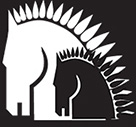An Old Herb Offers New Hope for Cushings Syndrome...
What is Cushing's Syndrome?
Cushing's syndrome is caused by either overactivity of the pituitary gland or a tumour in the gland itself. These resultant hormonal imbalances cause a collection of clinical signs and symptoms. The symptoms can include some or all of the following:
• abnormally long coat,
• muscle wasting and weight loss, despite an increased appetite,
• sagging pot belly,
• laminitis,
• depression or low energy levels,
• increased thirst,
• increased urination,
• abnormal fat deposits even on thin horses,
• enlargement of mammary glands,
• eye tumours and blindness.
The most common symptom is a thick, long curly coat that does not shed in the spring.
Combined with the visible symptoms described above you will usually find a depressed immunity. This leads to increased infections, possibly skin sores and increased susceptibility to internal parasites. Depression of the immune system is probably caused by the hormonal imbalances and is likely to be made worse by the general poor condition.
The Pituitary Gland
The pituitary gland, located below the brain, regulates the secretion of hormones by other glands throughout the horse's body. Various theories have been advanced as how overactivity in the pituitary or a pituitary tumour result in the disease. The current thinking is that high levels of prolactin cause the characteristic insulin resistant diabetes-like state. High prolactin would also explain the enlarged mammary glands, loss of cycling in mares and may even be influential in the abnormal hair coats.
The Herbal Alternative.
The conventional allopathic treatment for Cushing's is to use one of two drugs that are also used in human therapy. They are pergolide and cyproheptadine. They both act on certain brain chemicals known as neurotransmitters. They work in slightly different ways but pergolide seems to be effective on more horses. It works on humans in those with high prolactin secreting tumours. These drugs are quite expensive and more importantly, some elderly animals cannot tolerate them when they are administered over a long period. Herbalists have known for years that Chaste Berry (Vitex agnus-castus) alters prolactin levels. The research being carried out in the UK is by the Laminitis Trust. They are continuing an earlier study by a group in the USA. Chaste Berry is a herb used in the treatment of hormonal imbalance in women. It is particularly useful in the treatment of mood swings and other adverse symptoms surrounding the monthly cycle.
The preliminary findings of the American group show excellent results. Here is an edited report.
“We initially gave Vitex to a horse and two ponies (all geldings) with classical Cushing's symptoms. The manufacturer of Hormonize, recommended we use the larger end of the recommended dosage scale and give it daily, rather than in three-weeks-on/one-week-off cycles.
The response was rapid and dramatic. Within two to three weeks, shedding was occurring rapidly. One pony was white and would leave huge piles of hair (giant nests) around the field. The old hair had been coarse, dry, thick and curly, but the new growth was normal, sleek and had a high shine.
All three geldings shed out completely for the first time in years, most with an early large loss of hair, followed by continued slower shedding or a few bursts of shedding until the abnormal hair was lost.
The other obvious change was increased energy levels. A chronically foundered pony was also getting around much better, even trotting, although no one would call him sound. It was difficult to tell if the increased activity level was related to his newfound energy or to improvement in the laminitis.
One pony failed to receive his Vitex for a three-week period, due to communication problems with the caretakers. Interestingly, his energy level dropped again and the abnormal coat began growing back rapidly. Resuming the Vitex led to a rapid shed and higher energy.” (Thanks to the Horse Journal)
We have been led to research Cushing's in some detail. It is really encouraging to see that traditionally allopathic practitioners are willing to start using herbs. However, from looking at the other symptoms it is clear that there are a few other things that herbal medicine can do to help. The most obvious is the depressed immune system. This is a classic case for the use of Echinacea. A daily dose of 10 mL , depending on size and severity, of Echinacea would help to support the immune system. This needs to be given every day. As an aside on Echinacea. Do not be convinced by people that advise on and off periods with this herb. It is quite safe to use over an extended period if you need to. I am surprised by the number of people that still say it is dangerous to use it for more than two or three weeks without a break. I have yet to see any reputable information to back this up.
Other herbs to look at in Cushings's syndrome would be Devil's Claw to help with the laminitis and Ginger to assist with circulation.
Finally I could not resist the following quote from the report on the American trial:
There's no known cure for Cushing's, so veterinarians focus on treating the symptoms. Prescription drugs do show results and aren't a bad choice, but we've also found an herbal supplement that shows incredible promise.
©James Hart


